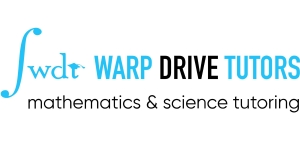IB® Higher Level Analysis and Approaches
Some Basics:
This is the most challenging mathematics course on offer in the IB® Diploma Programme. It focuses on pure mathematics, encompassing the BC calculus curriculum, but also includes some statistical techniques. The content is beyond most college level calculus 1 classes. The course includes one piece of coursework (Internal Assessment) worth 20% of the grade, one non-calculator exams, one calculator exam and one problem solving exam. In line with the IB®’s commitment to developing problem solving skills, many of the questions throughout all three papers require novel applications of the taught mathematics, adding another level of challenge.
Pure topics usually covered include:
- Sequences and Series: arithmetic and geometric, sum to infinity
- Complex numbers: De Moivre, Modulus-Argument form
- Functions: exponentials and logarithms, composite and inverse, graph transformations, modulus
- Algebra: partial fractions, binomial expansion, solving 3 linear equations, proof, Mclaurin series
- Trigonometry: identities and equations, reciprocal and inverse functions, compound angles
- Vectors: scalar product, cross product, equations of lines and planes
- Differentiation: limits, chain, product and quotient rules, optimisation, L’Hopital’s rule, implicit differentiation, connected rates of change
- Integration: volumes, trigonometry, exponentials, logarithms, by substitution, by parts
- Differential Equations: Euler’s method, separation of variables, integrating factor
Statistics topics usually covered include:
- Graphs: histograms, cumulative frequency curves, box and whisker plot
- Regression: correlation, regression equation
- Random Variables: pdfs, expectation, Binomial, normal, linear transformations
- Probability: successive events, conditional, Bayes Theorem
Typical problem areas include:
- Application of vector geometry in real life contexts
- Manipulating logarithms to give definite integrals as exact values
- Defining and linking variables to solve problems involving connected rates of change
- Over-reliance on calculators for trigonometric equations
- Selecting the appropriate technique to solve a differential equations, especially if it is not presented in the standard form
- Finding a suitable IA topic
How a tutor can help:
There is a lot of content which needs to be covered in a short time frame, so classroom teachers need to move through topics quickly. If you have some weaker areas, or are perhaps not completely fluent in the more fundamental techniques, each new topic can seems like it is entirely separate, and the whole course feels like a huge number of formula, facts and figures to memorise. The secret is that when you understand the basic techniques, the whole course fits together beautifully and very little memorisation is required. When a class struggles with a differential equations homework, the teacher will go over how to solve differential equations again, and maybe set a similar exercise. When a tutor watches you struggle with a differential equation, he won’t just go over differential equations. An experienced tutor will be looking carefully at how you handle each of the techniques you need to have mastered in order to solve the differential equation: complex numbers, integration, laws of indices, logarithms, etc. Once he identifies the problem areas, he will help you to master them before returning to differential equations. Consequently, you develop mastery over the techniques and can see the connections within the course.
Students looking to secure a 7 in this course may find that too quickly, they exhaust the practice questions offered in the textbook, especially as the course is new and there are no past papers. Our tutors can source or even write suitable questions so that top students can get the practice they need on the most demanding questions.
Give us a shout if you need help!
